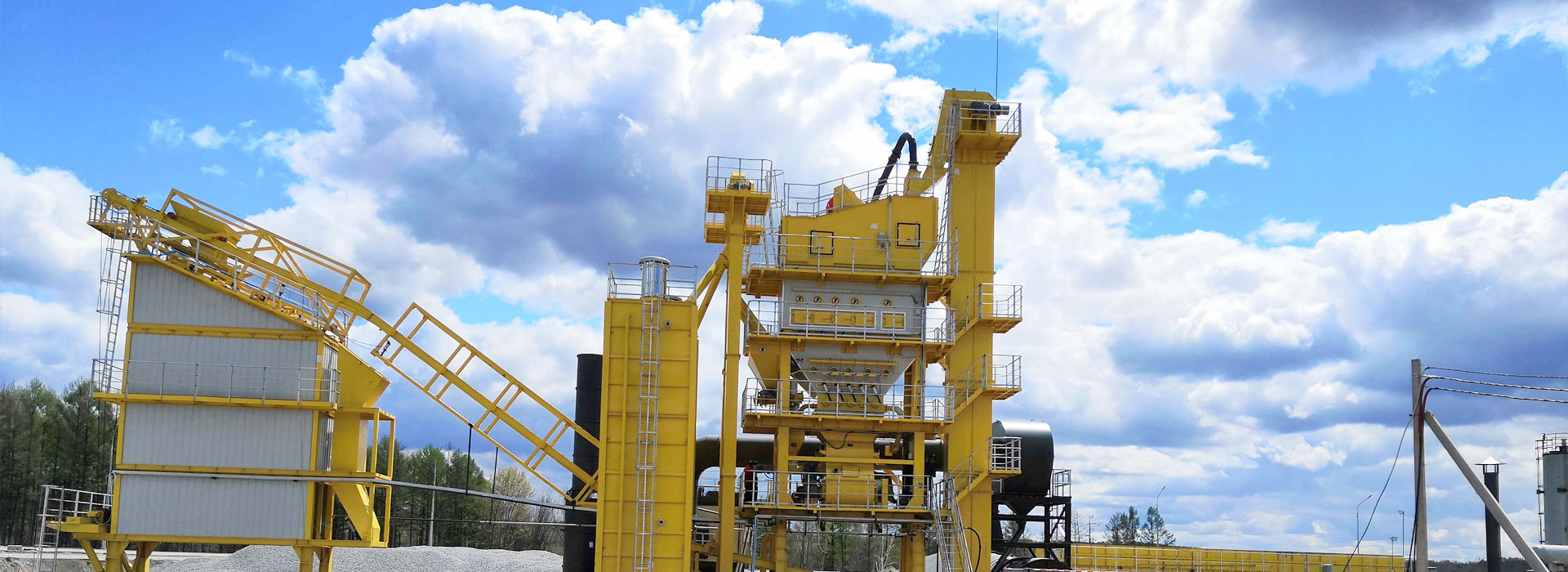 English
English Español
Español  Português
Português  русский
русский  Français
Français  日本語
日本語  Deutsch
Deutsch  tiếng Việt
tiếng Việt  Italiano
Italiano  Nederlands
Nederlands  ภาษาไทย
ภาษาไทย  Polski
Polski  한국어
한국어  Svenska
Svenska  magyar
magyar  Malay
Malay  বাংলা ভাষার
বাংলা ভাষার  Dansk
Dansk  Suomi
Suomi  हिन्दी
हिन्दी  Pilipino
Pilipino  Türkçe
Türkçe  Gaeilge
Gaeilge  العربية
العربية  Indonesia
Indonesia  Norsk
Norsk  تمل
تمل  český
český  ελληνικά
ελληνικά  український
український  Javanese
Javanese  فارسی
فارسی  தமிழ்
தமிழ்  తెలుగు
తెలుగు  नेपाली
नेपाली  Burmese
Burmese  български
български  ລາວ
ລາວ  Latine
Latine  Қазақша
Қазақша  Euskal
Euskal  Azərbaycan
Azərbaycan  Slovenský jazyk
Slovenský jazyk  Македонски
Македонски  Lietuvos
Lietuvos  Eesti Keel
Eesti Keel  Română
Română  Slovenski
Slovenski  मराठी
मराठी  Srpski језик
Srpski језик
How does a 280TPH stationary asphalt mixing plant work?
2024-10-22

What is the working principle of a 280TPH stationary asphalt mixing plant?
The working principle of a 280TPH stationary asphalt mixing plant is based on the gravity feeding system. The raw materials, including aggregates, fillers, and bitumen, are transferred from the storage bins to the mixer in precise proportions. The ultimate goal is to create a homogeneous and consistent mixture of asphalt. The plant includes a predrying drum, thermocouples, and automated controls that regulate the temperature, mix design and output quality.What are the features of 280TPH stationary asphalt mixing plant?
Some of the prominent features of the 280TPH stationary asphalt mixing plant include: 1. High production efficiency and capacity 2. Precise weighing and dosing of materials 3. Low energy consumption 4. Environmentally friendly design with minimal pollutant emissions 5. Automatic control system for easy operation 6. Easy maintenance and repair 7. Durable and long-lasting materialsWhat are the benefits of using 280TPH stationary asphalt mixing plant?
The benefits of using a 280TPH stationary asphalt mixing plant include: 1. High-quality asphalt production with maximum output 2. High production efficiency that ensures timely and smooth project completion 3. Cost-effective operation that minimizes time and labor costs 4. Low maintenance costs and minimal chances of breakdowns 5. A reliable and robust solution that ensures long-term durability.In conclusion, 280TPH Stationary Asphalt Mixing Plant is a highly efficient and reliable solution for the production of high-quality asphalt. Its advanced features and benefits make it ideal for large-scale construction projects that require a reliable and durable asphalt production plant.
WUXI XUETAO GROUP CO., LTD is a leading manufacturer of Asphalt Mixing Plants in China. Our products include various types and sizes of asphalt plants that have been widely used in domestic and overseas markets. We are a customer-focused company that is committed to delivering high-quality products and after-sales services to our clients. For more information, including a detailed product catalog, please visit our website at https://www.xtasphaltplant.com. If you have any questions, please feel free to contact us at webmaster@wxxuetao.com.
Research Papers
1. L. Wang, Y. Wang, X. Li, and W. Zhang. (2016). Effects of asphalt aggregate gradation and design parameters on rutting performance of asphalt pavement. International Journal of Pavement Research and Technology, 9(1), 18-28.
2. S. Xie and L. Li. (2017). Analysis and evaluation of road damage caused by overloaded vehicles. International Journal of Pavement Research and Technology, 10(5), 401-412.
3. X. Li, Y. Wang, and Y. Liu. (2018). An experimental investigation of the effects of ageing on the rheological properties of asphalt binders. Construction and Building Materials, 176, 1057-1069.
4. Y. Yang, H. Zhang, and T. Sun. (2019). Performance evaluation of asphalt pavement with different asphalt pavement maintenance techniques. Journal of Cleaner Production, 240, 118276.
5. Y. Sun, X. Liu, and J. Wang. (2020). The effect of rejuvenation agent on the properties of aged asphalt binders. Construction and Building Materials, 233, 117330.
6. W. Liu, L. Tian, and Y. Li. (2017). Simulation study on the temperature distribution inside asphalt mixture during production and compaction processes. Construction and Building Materials, 132, 299-306.
7. Y. Liu, X. Li, and Y. Wang. (2019). Experimental study on the low-temperature cracking resistance of asphalt binders with different aging conditions. Road Materials and Pavement Design, 20(3), 633-648.
8. W. Zhang and Y. Wang. (2016). Evaluation of the skid resistance of asphalt pavements under different experimental conditions. International Journal of Pavement Research and Technology, 9(2), 140-147.
9. L. Wang, J. Hu, and Y. Wang. (2020). Study on the damage mechanism and prevention measures of asphalt pavement rutting. Construction and Building Materials, 263, 120398.
10. K. Wang and B. Huang. (2018). A review of the research progress on the use of waste tire rubber in asphalt mixtures. Journal of Cleaner Production, 204, 642-659.




